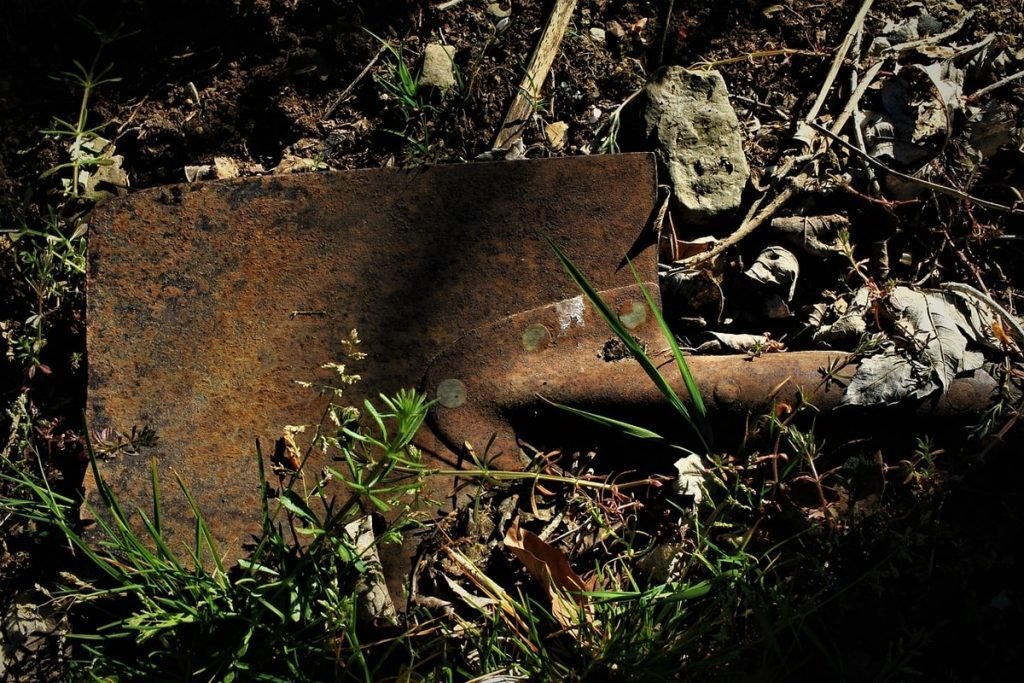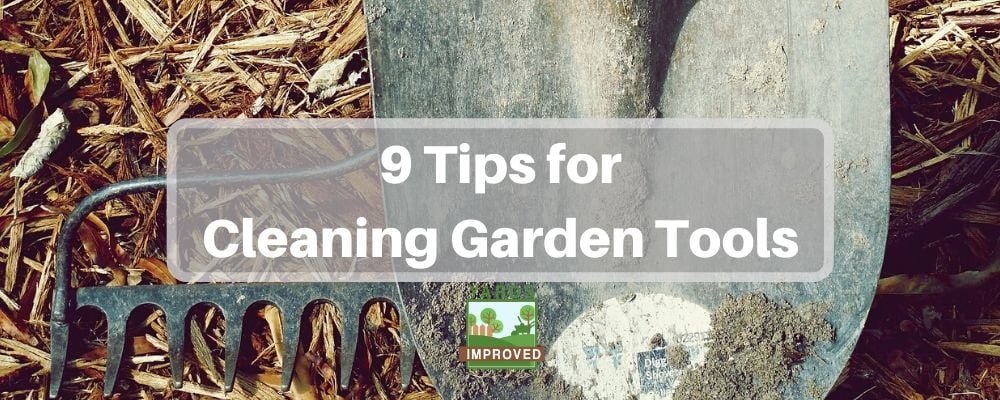Take care of your tools, and your tools will take care of you. It’s an adage among carpenters, craftsmen, and others who depend on their tools to make their living. But it’s just as true for your tools around the house. If you treat them right, they’ll work better and hold up longer.
Garden tools can be an investment. They can hold up for years without giving you any problems. But if they’re not kept clean, they can rust and deteriorate quickly. Dirt and water can do a job on them. And that’s not to mention oil or other chemicals they come in contact with during normal use.
Proper cleaning is pretty simple, fortunately. By developing a habit of doing it regularly, you can be confident that your tools will stay in great shape.
What You’ll Need
Here are the items you’ll need to keep your garden tools in good shape.
- Putty knife
- Hose
- Sharpening stone
- Turpentine (lighter fluid or Goo Gone are good substitutes)
- Rags
- Wire brush or steel wool
- Sandpaper
- Bucket for storing tools
- Vegetable oil or lubricating oil
- Sand
Tools only stay cleaned if their kept in a clean, safe place. Check out our tips for organizing your shed!
9 Steps To Cleaning Garden Tools
Scrape off dirt
The first step is the most obvious: simply remove dirt from your tools. You may be able to tap off the majority of it or knock it off with your hands.
For tougher chunks, a putty knife comes in hand to scrape the dirt off.
For this – and for all the following steps – remember to clean not just the “business end” of the tool, but the handle as well.
Rinse the tools
Once the majority of the dirt is off, hose the tools down to get rid of finer dirt and grime. This will help remove any remaining dirt. It’ll also get into joints or other areas tough to reach by hand.
Remove sap
If you’ve been trimming branches, roots, or stalks, sticky sap has probably gotten onto your tools. This includes cutting tools, but could also affect shovels, trowels, or other digging equipment.

Pour some turpentine into a rag and wipe the tool thoroughly, including the handle. Be sure to concentrate on the joints – otherwise, you’ll have real trouble with blades opening and closing!
Be especially careful around sharp edges so that you don’t cut yourself, too.
Disinfect
If you’ve been working with plants that have fungus or other diseases, you’ll want to disinfect any tools you used on them, too.
Disinfectant wipes (bleach-free, though!) will do the job, or you can use disinfect on a clean cloth.
Scrape off rust
Inspect your tools regularly for any rust spots. These can grow quickly if left uncared for. So as soon as you notice them, be sure to rub it off with steel wool or a wire brush.
Adding some oil to the tool will help make it easier to scrape off the rust.

Sharpen as necessary
Keep your cutting tools working well by sharpening them regularly. There are many types of sharpening stones, so you’ll have to learn to use your particular style. Some manufacturers also provide or offer special tools to sharpen their tools.
Sharpen the edge of your garden spade, too, to make it easier to cut through the soil!
Smooth Handles
To help keep wooden handles in optimal condition, occasionally use smooth sandpaper on them. By doing this, you’ll help remove any wood that’s starting to splinter before it becomes an issue. It might even be before you notice it.
Over time, the finish on the wood will wear off. You could consider recoating it with polyurethane if that happens.
Let them dry before storage
Before putting your tools away, let them dry out. If possible, leave them in the sun for a while. This will help prevent rust while the tool is in storage.
Often, tools are stored in cool places where they won’t dry quickly. As much as possible, it should be a dry place as well.
Store in sand
Another great tip for storing tools is to put them in a bucket of sand that has some vegetable oil or lubricating oil added. You could even recycle your old lawn mower oil this way.
For smaller tools like trowels and hand pruners, a coffee can or flower pot could replace a larger bucket.
The roughness of the sand along with the lubricating effect of the oil will help keep rust and moisture at bay.
If it’s not practical to dig the blade of larger tools in a bucket of sand, hang them on the wall. This will help keep them in order and prevent warping of the handle.
Conclusion
When you take the time to clean and care for your garden tools, they’ll work better for you and last longer. A few extra minutes after each use will help keep them in pristine condition. There’s nothing complex about it, it will make working with the tools easier in the future, and it will save you money in the long run!









